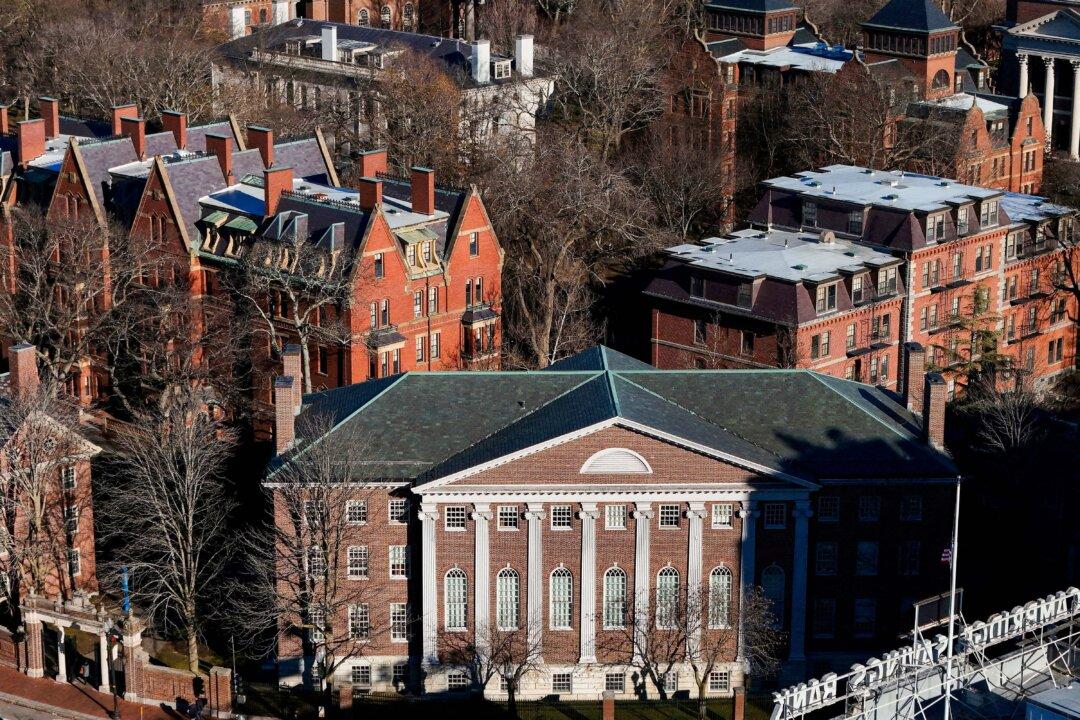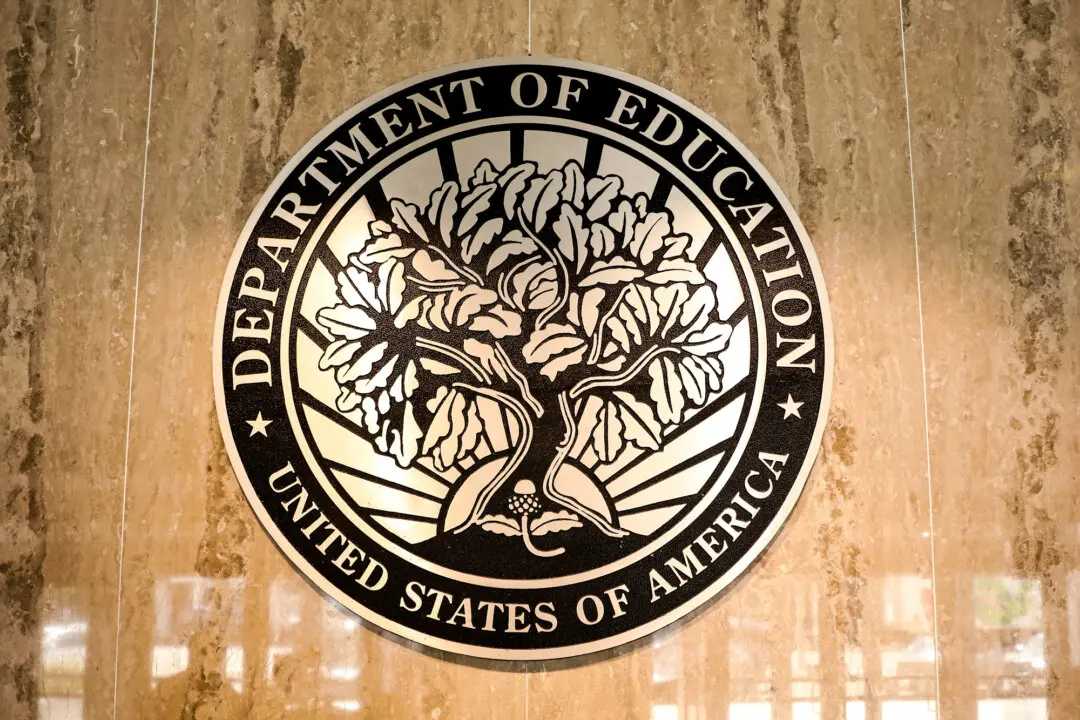The fight between the Trump administration and Harvard University has now expanded to two legal disputes.
The university first sued over the administration’s cancellation of more than $2 billion in grants over Harvard’s alleged failure to accede to various demands concerning anti-Semitism and diversity, equity, and inclusion (DEI).
A second lawsuit was brought by Harvard challenging the Department of Homeland Security’s (DHS) revocation of the university’s Student and Exchange Visitor Program certification, curtailing its ability to enroll international students.
In both cases, Harvard argues that the administration’s actions violated the university’s First Amendment rights, as well as due process requirements.

Origins of a Standoff
On taking office, President Donald Trump quickly enacted his campaign promise to withhold federal funding from educational institutions involved with DEI, anti-Semitism, or ideological indoctrination practices, including allowing biological males to participate in women’s sports.The higher education community, meanwhile, has hailed Harvard as a defender of First Amendment rights in a fight against “unprecedented government overreach and political interference.”
Harvard’s First Legal Complaint
Harvard’s April 21 lawsuit says the medical research grants the Trump administration froze have no connection to the harassment of Jewish students, and that First Amendment free speech protections do not permit the government to “interfere with private actors’ speech to advance its vision of ideological balance.”“Nor may the government rely on the threat of invoking legal sanctions and other means of coercion to achieve the suppression of disfavored speech,” it says, adding that under federal law, Harvard has the right to hire whomever it wants and teach whatever it wants.
The lawsuit also stated the university took several steps to address anti-Semitism before the funds were frozen, and argued that the Trump administration did not initiate a required formal due process, which has been noted in Supreme Court cases, that includes a hearing and a report to relevant committees in the House and Senate.
“Defendants did not lawfully attempt to secure compliance by voluntary means before freezing Harvard’s federal assistance,” the lawsuit says.
Both Sides See an Open-and-Shut Case
Georgetown University Law Professor David Cole, who previously served as national legal director for the American Civil Liberties Union and has represented groups on both sides of the political spectrum, told lawmakers that the First Amendment allows for anti-Semitic language and assemblies on college campuses, just as it does for any group that embraces or fights racism.DEI is also within the scope of academic freedom protected by the First Amendment and Civil Rights laws, Cole added.
“Academic freedom is a special concern of the First Amendment,” he said. “Universities make these decisions, not politicians.”
It takes a lot to prove that a person or entity’s actions have exceeded the boundaries of free speech to the point of harassment, Cole told the House panel on May 7.
An individual or group of individuals’ harassment against a student is not the same as institutional harassment to the point where a student’s equal access to education is denied specifically because of their Jewish identity. To prove the latter, there must be evidence that the university was “deliberately indifferent” to the acts and events, Cole said.
Of the several universities the Trump administration has accused of anti-Semitism, Cole said he is unaware of any circumstances where that burden of proof has been satisfied.
“There’s a very high standard. It’s almost never been met,” Cole said. “The greater danger is giving the government power to censor speech by labeling it.”
Other experts agree that the First Amendment allows campuses to promote DEI and protects even hateful language on campuses. But they say that this doesn’t supersede the Trump administration’s right to withhold funding under the authority of the 1964 Civil Rights Act if those activities create a hostile environment or are deemed discriminatory.
There’s nothing in the Constitution that indicates higher education institutions are entitled to government money, they say.
John Shu, a constitutional law expert who served in both Bush administrations, said the federal government may withhold funding or take other actions against institutions that discriminate.
“If the universities don’t want the government to meddle in their affairs, then they shouldn’t take government money,” Shu told The Epoch Times. “Regardless, they shouldn’t be discriminating in the first place. Just because Harvard got away with it for the past several decades doesn’t mean it’s not wrong.”
Kim Hermann, executive director of the Southeastern Legal Foundation, which has successfully litigated against DEI in education, said Harvard’s argument that the federally-funded medical research grants had no connection to campus anti-Semitism won’t hold up in court.
What’s Next?
Harvard has asked the court to order the Trump administration to unfreeze all of its expected federal funds and refrain from taking additional actions against the university. Oral arguments are scheduled to begin July 21.“Harvard is a place to bring people of all backgrounds together to learn in an inclusive environment where ideas flourish regardless of whether they are deemed ‘conservative’, ‘liberal’, or something else, a place where assumptions and claims are tested and challenged, respectfully and thoughtfully, in pursuit of knowledge and truth,” Garber’s letter said.

Dispute With DHS
DHS Secretary Kristi Noem’s May 22 decision to revoke Harvard’s ability to enrol foreign students has opened a second front in the university’s legal battles with the administration.
Bracing for a Tax-Exemption Fight
With the Trump administration threatening to revoke the university’s tax-exempt status, another legal battle may be on the horizon.If professors force their political views, such as accusing Israel and the United States of white supremacy and colonialism, onto students, the IRS could reasonably construe such behavior as propagandizing, Shu said.
Any attempt to revoke the university’s tax-exempt status is all but certain to also wind up in litigation, and ultimately, Shu believes Harvard vs. Trump will be decided by the Supreme Court.
The Epoch Times reached out to Harvard for an updated response.







